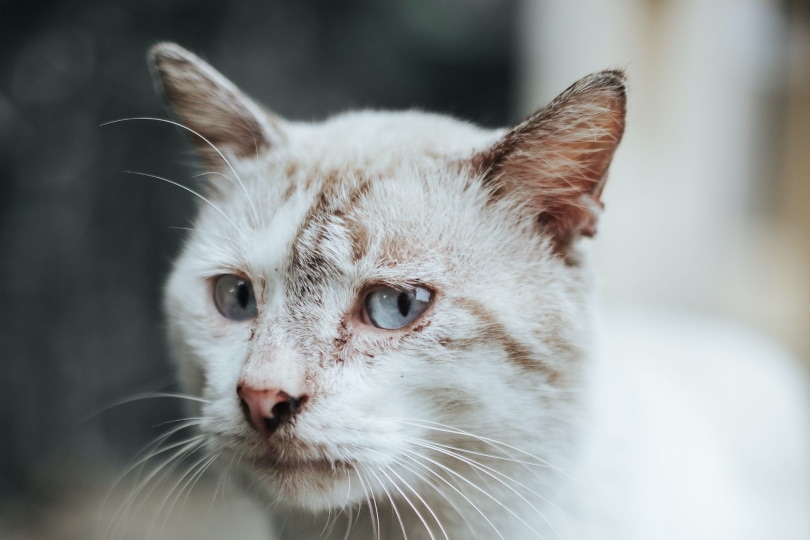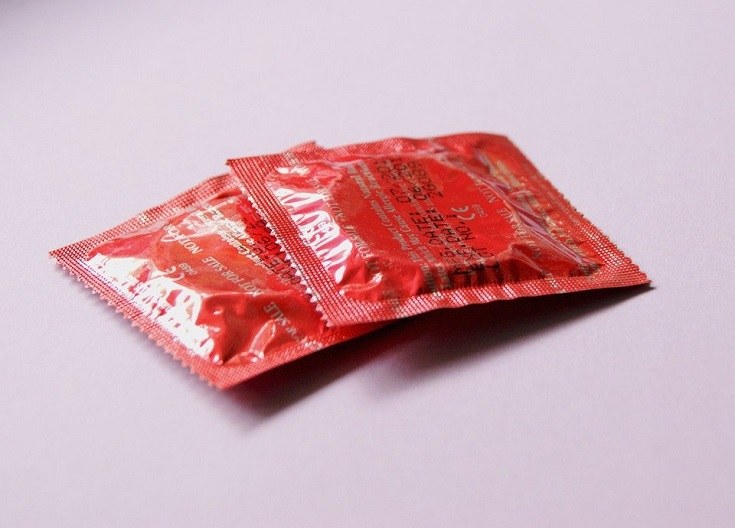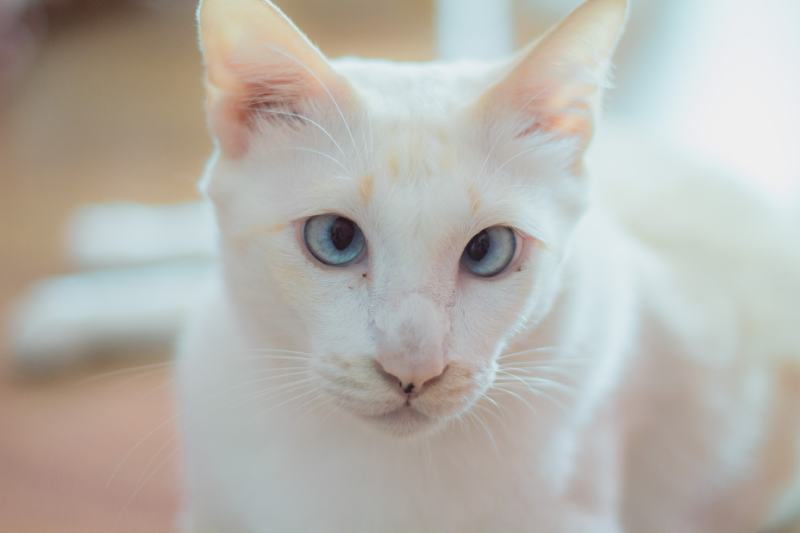My Cat Ate Garlic Bread, What Should I Do? Our Vet Explains

Updated on
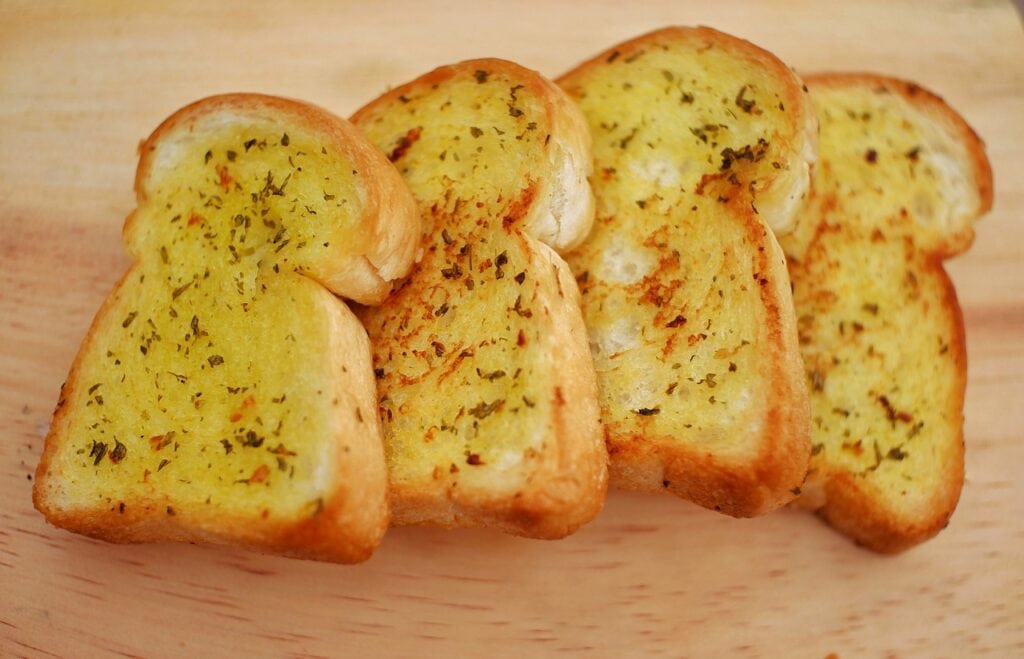
Click to Skip Ahead
Although most people like garlic in their food and it’s even considered beneficial for us, the same cannot be said about cats.
Garlic is toxic to cats, raw or cooked, even in small amounts. Therefore, avoid giving food that contains garlic (or onion) to your cat.
If your cat has consumed garlic bread, the danger depends on how much they consumed and on their body size. Even one tiny lick or bite of the garlic bread can lead to gastrointestinal problems but also hemolytic anemia in more severe cases or in younger animals with a small body weight, as garlic is five times more toxic than onions.
No matter the amount ingested, the safest thing that you can do is to consult with your vet and take your cat to be checked out. The veterinarian will evaluate your cat and recommend an appropriate course of action based on the ingested toxic amount. The most important thing you can do is make sure your cat does not come into contact with any garlic or other members of the Allium family in the future.
Is Garlic Bread Safe for Cats?
Garlic (Allium sativum) belongs to the genus Allium and is related to onions and leeks. It has been used for culinary and medical purposes since ancient times. It has prophylactic and therapeutic actions in humans, but it is toxic to pets, whether it is raw or cooked.
Garlic contains organosulfur compounds, which belong to two classes: gamma-glutamylcysteine and cysteine sulfoxide. The active substances are released especially when the tissue structure of raw garlic is changed by fragmentation, pressing, crushing, or chewing. In these circumstances, a category of enzymes called alliinases is released, which leads to the transformation of cysteine sulfoxides into sulfenic acids. These react spontaneously with each other, resulting in unstable compounds. These compounds are called thiosulfinates and are what makes garlic toxic to dogs and cats.
When cats ingest any vegetable in the Allium genus, they are at risk of developing hemolytic anemia, caused by red blood cell damage, depending on the amount they have eaten. They can also experience gastroenteritis.
Therefore, garlic bread is not safe for cats, even if it only contains garlic in small quantities. There is no safe amount your cat could eat, and make sure to keep all garlic bread and other products containing garlic or onions safely stored away from your cat.

How Much Garlic Is Poisonous for Cats?
Garlic is toxic to cats, even in small amounts. Therefore, for a 10–12-lb. cat, a 4–7-gram garlic clove can lead to severe toxicity and be life-threatening, according to PetMD. Also, 1/2 a teaspoon of minced garlic or 1/8 teaspoon of garlic powder can have devastating effects on your cat.
The American College of Veterinary Pharmacists (ACVP) suggests a toxic dose range of Allium plants in cats weighing 1–10 lbs (0.45–4.6 kg) is 0.75 oz or more, while for cats between 11–25 lbs (5–11.4 kg) is from 0.85 oz. However, for garlic this is often considered less, as it is more potent than onions and leeks, and is considered 3-5 times more toxic.
The level of toxicity depends on the amount of garlic ingested, its concentration and the weight and size of your cat and their health status.
What Are the Signs of Garlic Toxicity in Cats?
If your cat has eaten garlic or products containing garlic, such as garlic bread, it may take up to a week for signs of toxicity to appear, if the toxic doses were small. Otherwise large amounts of garlic will cause illness within 24 hours. The most common clinical signs of garlic poisoning in cats include:
- Excessive salivation
- Nausea
- Abdominal pain
- Vomiting
- Diarrhea
- Lethargy
- Fatigue and exercise intolerance
- Increased respiratory rate
- Elevated heart rate
- Breathing with difficulty
- Weakness
- Pale gums
- Jaundice
- Blood in urine (dark brown or red)
- Lack of appetite
- Collapse
Since garlic poisoning can lead to death, it is important to take your cat to the vet as soon as possible if you suspect they may have eaten garlic bread, you have definitely seen them eat it, or they are exhibiting any signs of illness.
How Is Garlic Poisoning Diagnosed in Cats?
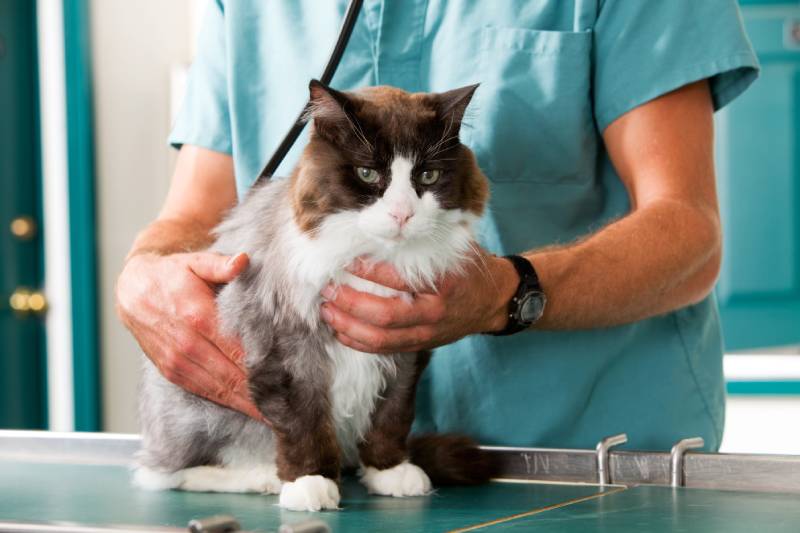
If you notice any of the clinical signs or you have seen your cat consuming raw garlic or any garlic products, take them to the veterinarian immediately for treatment. Describe to your vet the clinical signs that you noticed, when they started, or when your cat has ingested the garlic and any other changes in your cat’s diet, health, or behavior.
It’s crucial that your cat is seen by the vet as soon as possible, as the more time that passes from ingestion, the likelihood of them developing signs of toxicity is higher. This means that your vet will be able to provide symptomatic treatment, managing the already present or developing signs of toxicity, rather than to decontaminate your cat’s stomach. When caught and treated early, through gastrointestinal contamination, some of the toxic effects may be avoided or at least minimized.
The vet will start by running a series of tests, including a complete blood count, urinalysis, and a blood chemistry profile. The complete blood count and blood smear examination will show the veterinarian if your cat suffers from anemia. Still, there are several causes of hemolytic anemia, so it’s vital to give your vet your cat’s full medical history to rule out other possible causes.
What Is the Treatment for Garlic Poisoning in Cats?
Treatment depends on how long it has been since your cat ate raw garlic or garlic products. If your pet has recently consumed garlic, the vet will try to induce vomiting using certain injectable medications. Never try to induce vomiting in cats at home, as this is not safe. Cats are sensitive animals, and inducing vomiting will be difficult and oftentimes unrewarding (it is not as easy as with dogs!), and can be quite harmful to the cat if performed by untrained individuals.
At the clinic, the veterinarian can give your cat specific medicines to help them vomit. If successful, vomiting will remove most of the garlic from the stomach and prevent the worsening of your cat’s health condition. That said, it depends on how much garlic your cat has consumed, how long ago, whether they are already showing any signs of illness, and how much they weigh.
A gastric lavage may also be performed to ensure that most toxins have been removed from the stomach. In addition, the veterinarian can administer activated charcoal but it remains unclear how well it will absorb the toxins from the stomach and intestine before they reach the blood or if it can prevent production of sulfides from the garlic. The vet will need to monitor your cat’s condition to determine if they need supportive care, such as intravenous fluids, blood transfusion, or even oxygen therapy, in severe cases. Although it is rare, if your cat’s condition is serious and they have severe anemia, the vet may recommend a blood transfusion.
If you have mistakenly used a homeopathic garlic spray or product on your cat’s skin, not knowing it is toxic for cats, your vet will need to give your cat a bath to remove the toxins. Otherwise the cat will ingest the harmful substance and garlic through licking and grooming.
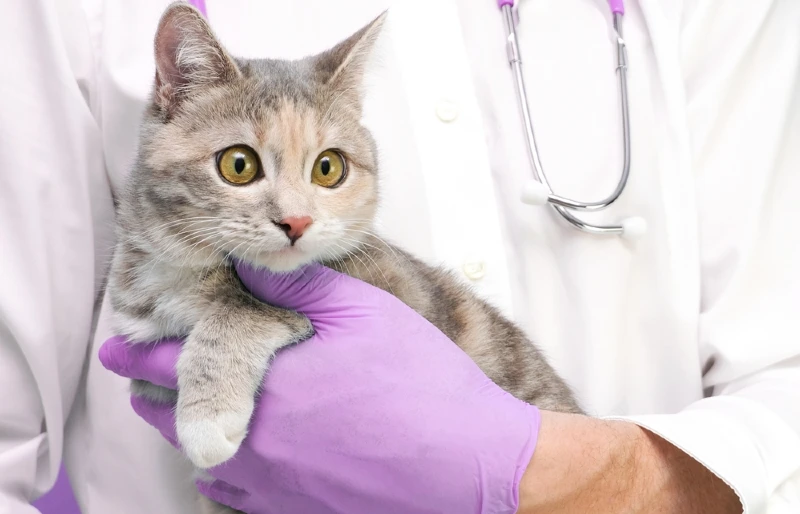
Frequently Asked Questions
Can I Offer Plain Bread to My Cat?
As long as the bread doesn’t have any additives or spices, it is not toxic for your cat. However, cats should still not be eating bread and will not benefit from it in the slightest. Consumption of bread can lead to obesity and a stomach upset due to high carbohydrate content, it is not suitable for patients suffering with diabetes, and finally, cats do not need it in their diet. The same applies to pastry products (avoid any foods containing chocolate, raisins, garlic, or onions!).
Can Cats Eat Garlic to Get Rid of Fleas?
No, cats cannot eat garlic to get rid of fleas. Eating garlic to kill and repel fleas is a myth. Garlic consumption by felines only leads to poisoning. The clinical signs of garlic poisoning in pets include hypersalivation, vomiting, diarrhea, nausea, increased heart and respiratory rate, difficulty breathing, collapse, anemia, and even death if severe or left untreated. Cats should not consume garlic in any way or form. One clove of 4–7 grams can cause severe toxicity to a 12-lb. cat.

Can Cats Have Onions and Chives?
Although garlic is three to five times more toxic than onions, this does not mean that onions and chives are not harmful to cats. They are part of the Allium genus and have organosulfur compounds in their composition. These plants are toxic to cats, whether they are raw or cooked. You must make sure your cat does not accidentally consume onions or chives.
How Much Leek Consumption Is Toxic to Cats?
The leek is part of the same genus as onions, garlic, or chives (Allium). This vegetable is also toxic to cats (and dogs). ACVP states that toxicity may occur if your cat consumes 0.5% or more of their body weight (this percentage being valid for all Allium plants). Signs of leek intoxication include vomiting, diarrhea, nausea, and hypersalivation. In severe cases when a large amount is ingested, anemia (pale mucous membranes), difficulty breathing, increased heart and respiratory rate, collapse, and even death may occur, if left untreated. For all these reasons, you must be careful what plants and herbs you keep around your cat and avoid feeding them human food. Keep them on a healthy and balanced complete feline diet that will fulfill all their nutritional needs.
Conclusion
Garlic is poisonous to cats. It contains organosulfur compounds that are released when garlic is fragmented (cut, crushed, chewed, etc.). It doesn’t matter whether the garlic is raw or cooked. Cooking does not reduce toxicity.
As for garlic bread, even if the concentration of garlic is low, it can still cause problems for your cat. While one mouthful is less likely to significantly hurt your pet, it is still important to avoid giving them any products that contain garlic. The severity of the poisoning depends on the weight of your cat and how much garlic they have ingested. If your cat has eaten garlic bread, other products containing garlic, or raw garlic, take them to the vet immediately for an evaluation.
Featured Image Credit: dhimastjondro, Shutterstock


